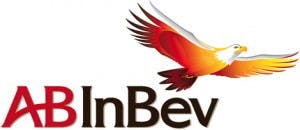The news that Anheuser-Busch InBev NV (ADR) (NYSE:BUD) InBev finally settled its differences with the Justice Department is welcome, as it allows the acquisition of Mexico’s Grupo Modelo to be finally completed.

Bud didn’t get everything it wanted and has to sell the entire U.S. Modelo business to Constellation Brands, Inc. (NYSE:STZ) rather than just its U.S. production. Justice didn’t stop the deal cold, and both sides gave up a little. Everyone wins, right?
Wrong! There’s a supposition here the Justice Department actually knows what it’s doing, that it knows best how to promote competition. Did anyone ever consider what makes them think they know what’s right for the market? Who are these guys, anyway? Have they even ever run a business?
The view from the ivory tower
The answer is largely “no.” These are government lawyers and economists making decisions from afar who have no real-world experience in owning and operating a business, and their decisions have littered the marketplace with failures.
The Justice Departmnt blocked Staples, Inc. (NASDAQ:SPLS) acquisition of Office Depot Inc (NYSE:ODP) several years ago for fear the office-supply market would become too concentrated, while also blocking 3M Co (NYSE:MMM) from buying Avery Dennison Corp (NYSE:AVY). Who knew paper clips, pencils, and sticky notes were such a key industry?
Yet the interference ensured that the industry suffered from too many suppliers, damaging all three players. Now the impaired Office Depot has to merge with the also-impaired OfficeMax Inc (NYSE:OMX) in hopes of saving both of them. As we should have learned from Sears Holdings Corp (NASDAQ:SHLD)‘ purchase of Kmart (which Justice didn’t oppose), merging two ailing companies doesn’t necessarily make a healthy one.
Hanging up on competition
AT&T Inc. (NYSE:T) was also successfully prevented from buying Deutsche Telekom AG (ADR) (PINK:DTEGY)‘s diminished T-Mobile subsidiary, and while many hailed the decision as preventing the creation of a duopoly between Ma Bell and Verizon Communications Inc. (NYSE:VZ), the impetus behind the merger was that consumers really didn’t want DT’s service to begin with. It wanted to get out of the U.S. market, and AT&T wanted T-Mobile’s spectrum to improve its woefully underperforming network.
Had the deal gone through, rather than stifle competition AT&T Inc. (NYSE:T) and Verizon Communications Inc. (NYSE:VZ) would have remained blood enemies with even greater intensity. If they attempted to raise prices as was feared, Sprint Nextel Corporation (NYSE:S), MetroPCS Communications Inc (NYSE:PCS) , and a host of smaller services would thrive as a low-cost alternative. Instead, Deutsche Telekom AG (ADR) (PINK:DTEGY) has to go through the rigmarole of acquiring MetroPCS and then selling the shares of the newly public company later on to get out of the U.S. market. Is a T-Mobile/MetroPCS Communications Inc (NYSE:PCS) network really going to be a more effective service?


